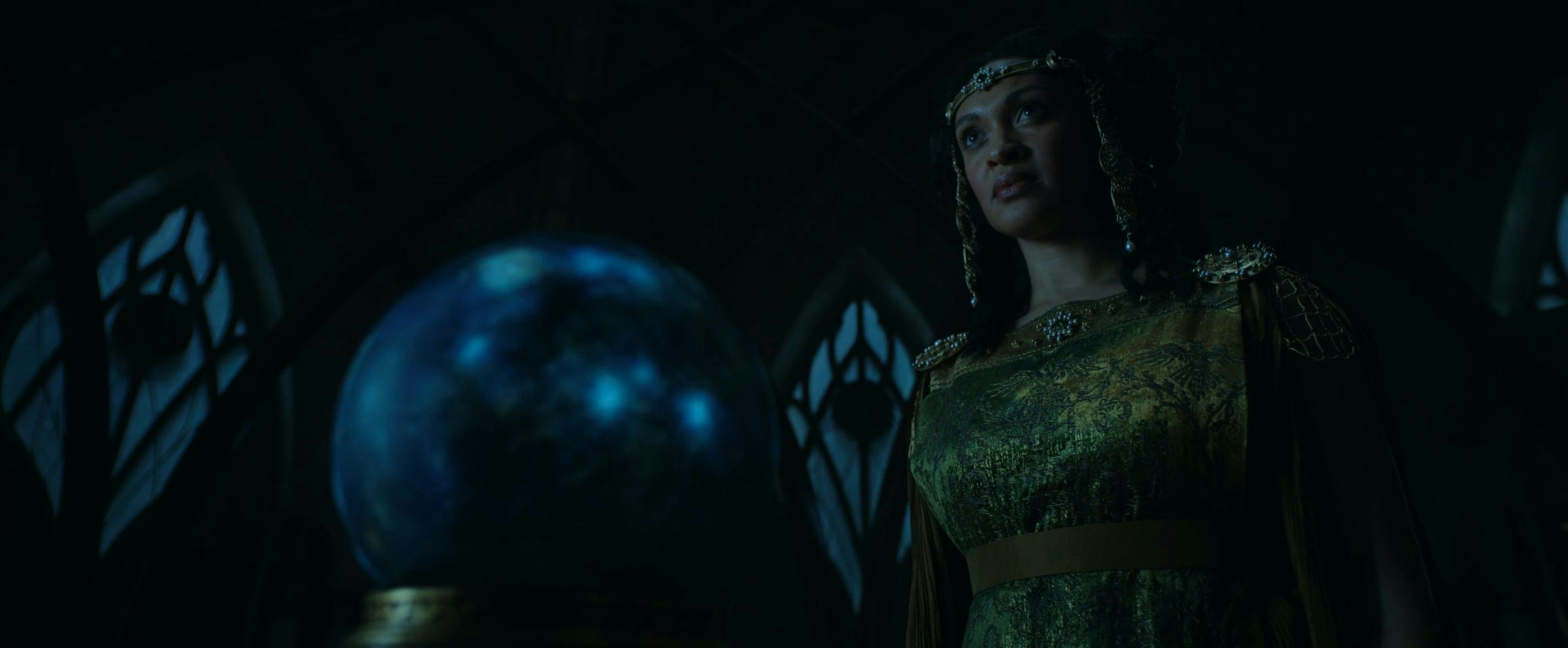
Ever since it premiered, The Lord of the Rings: The Rings of Power has made it clear it’s not afraid to take some big risks. Its first three episodes deviate from the show’s J.R.R. Tolkien-penned source material in ways that are both interesting and confounding. Furthermore, The Rings of Power has introduced fans to a number of new, original characters, some of whom have proven to be more compelling than others.
However, in its fourth episode, The Rings of Power takes its biggest risk to date. In order to discuss the creative decision in question, we’ll need to talk a bit about what happens in Tolkien’s original books, which means…
Major Rings of Power spoilers ahead.
Rings of Power and Númenor’s downfall
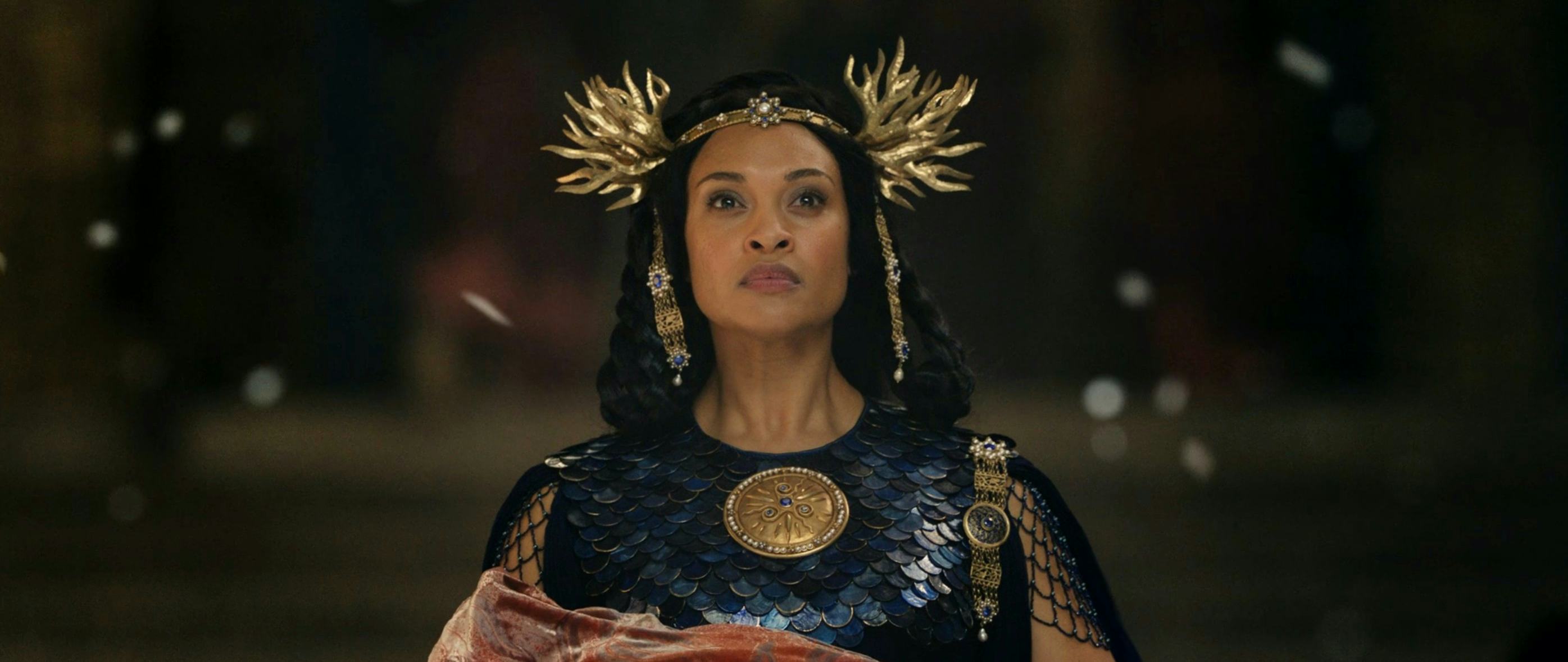
The Rings of Power Episode 4 begins by taking viewers into the mind of Míriel (Cynthia Addai-Robinson), the queen regent of Númenor, as she dreams of a great tidal wave that will one day drown her island kingdom and all of its inhabitants. Later, after she uses a palantír to share the vision with Galadriel (Morfydd Clark), Míriel remarks that it shows “Númenor’s future.” Those familiar with Middle-earth will know she is right.
In case its absence during the Third Age and the War of the Ring didn’t already make this clear: Númenor does not make it out of the Second Age of Middle-earth intact. Instead, the kingdom is destined to become so morally corrupted — both by its citizens’ own arrogance and Sauron’s machinations — that its army will one day attempt to storm the Undying Lands and go to war with the Valar themselves, who are essentially the angels of Tolkien’s fictional world.
In this fateful moment, Númenor attempts to go to war with Tolkien’s equivalent of Heaven. It’s an act that violates the terms the Númenóreans originally agreed to when the Valar raised Númenor from the sea and gifted it to them in the first place — namely, that they were prohibited from ever sailing so far westward that they’d come upon the Undying Lands. In response, the Valar call upon Tolkien’s version of God to reshape the world and drown Númenor beneath the sea.
As Míriel’s vision portends, that’s exactly what happens.
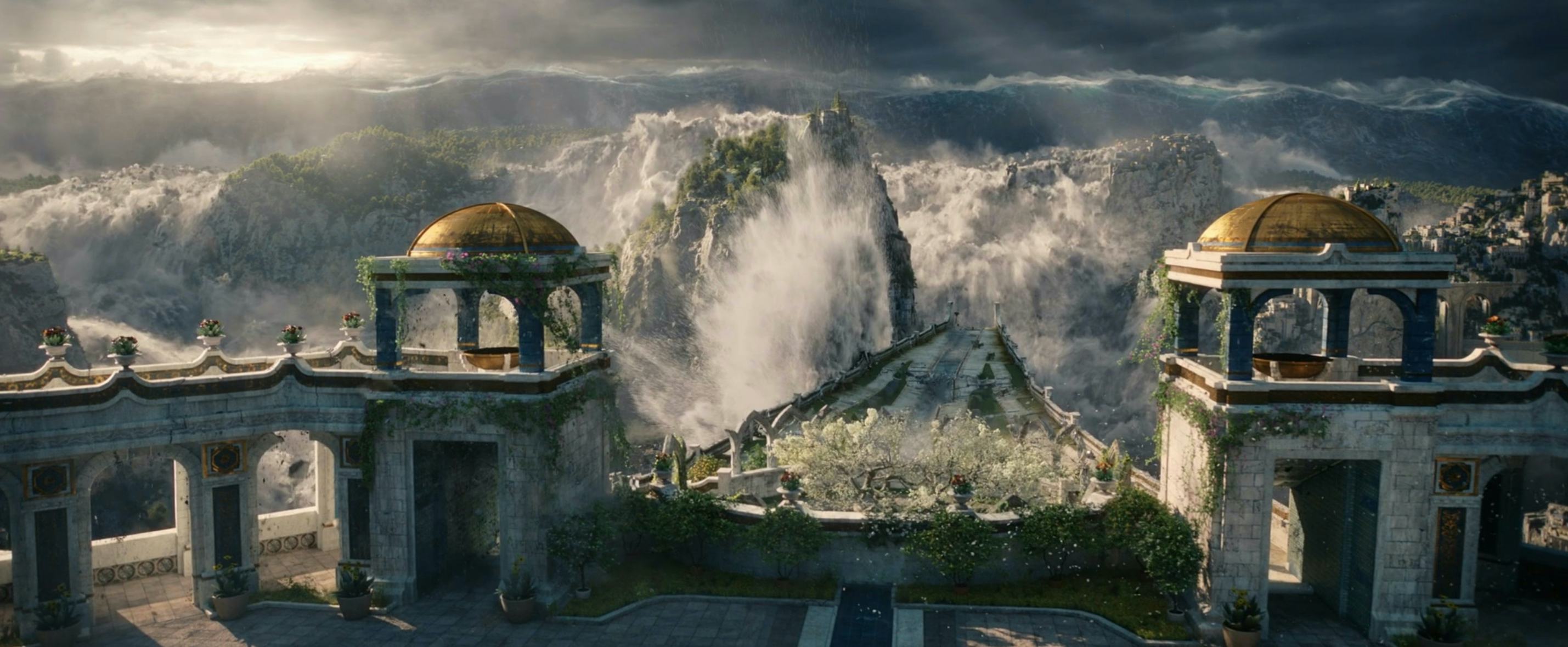
For obvious reasons, the drowning of Númenor has always been seen by Tolkien fans as one of the biggest moments of The Rings of Power’s story — if not the biggest. Why, then, has the series chosen to show it as early as its fourth episode, especially considering that Númenor probably won’t be destroyed until The Rings of Power’s third or fourth season?
The answer to that question is, frankly, a bit unclear. On the one hand, showing part of Númenor’s ultimate fate does add a lot more weight to the show’s ongoing exploration of the kingdom. Specifically, it puts into future context the ideological divide between those who resent the Elves and the Valar and those who wish to reestablish friendly relations with them. It also, notably, makes it explicitly clear just what is at stake should Númenor fail to stop the moral rot that is not only separating it from the rest of the world but also poisoning the souls of its people.
Is Rings of Power making a mistake?
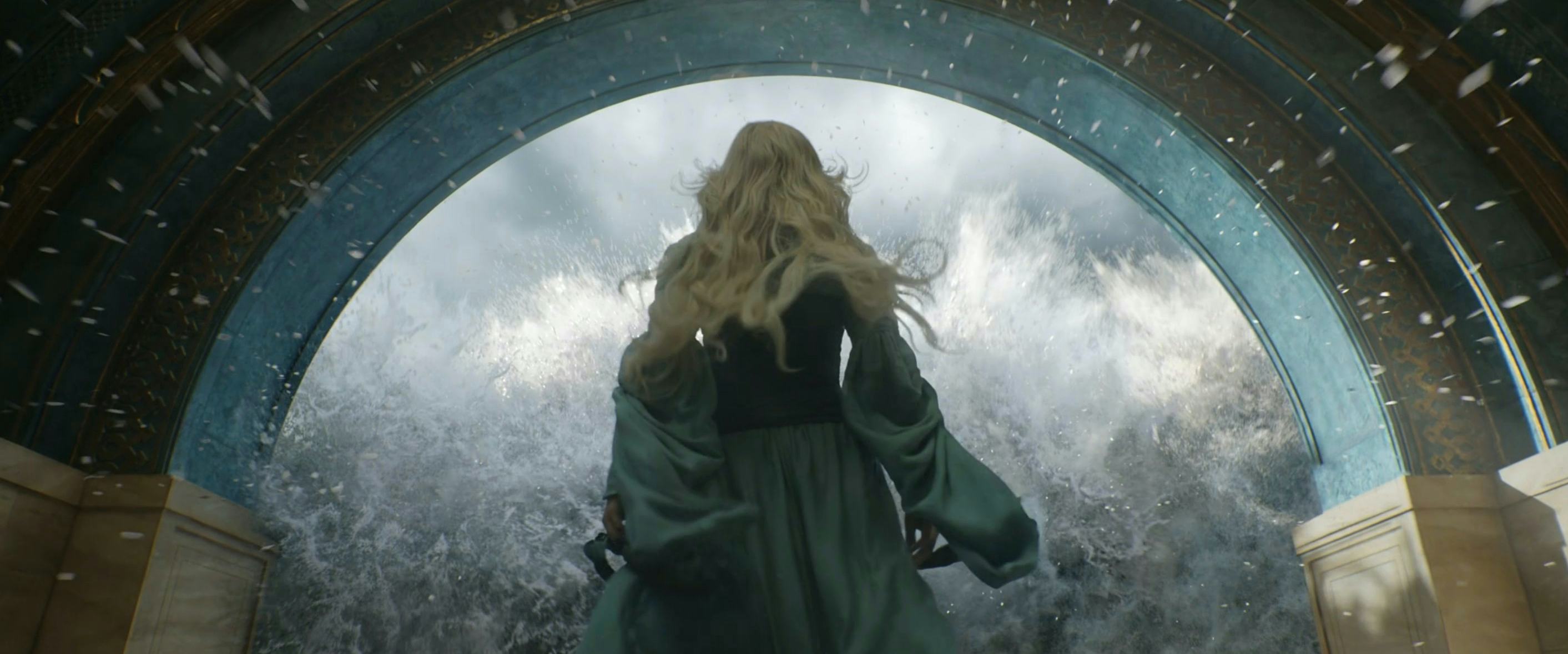
Númenor being drowned beneath the sea is a shocking moment that is as big as anything that Tolkien ever wrote about Middle-earth.
It’s a devastating turning point in history, one that sees Middle-earth’s greatest military power get brutally decimated and wiped off the face of the planet. By visually foreshadowing Númenor’s destruction this early in its run, The Rings of Power has, therefore, run the risk of dulling the impact of what will likely be one of the series’ defining moments.
For comparison’s sake, it’s a bit like if Game of Thrones Season 3 opened with a vision of The Red Wedding. While that would have added more weight to every scene involving Robb (Richard Madden) and Catelyn Stark (Michelle Fairley) throughout the season, it also would have robbed The Red Wedding itself of a lot of the shocking brutality that made it so impactful in the first place.
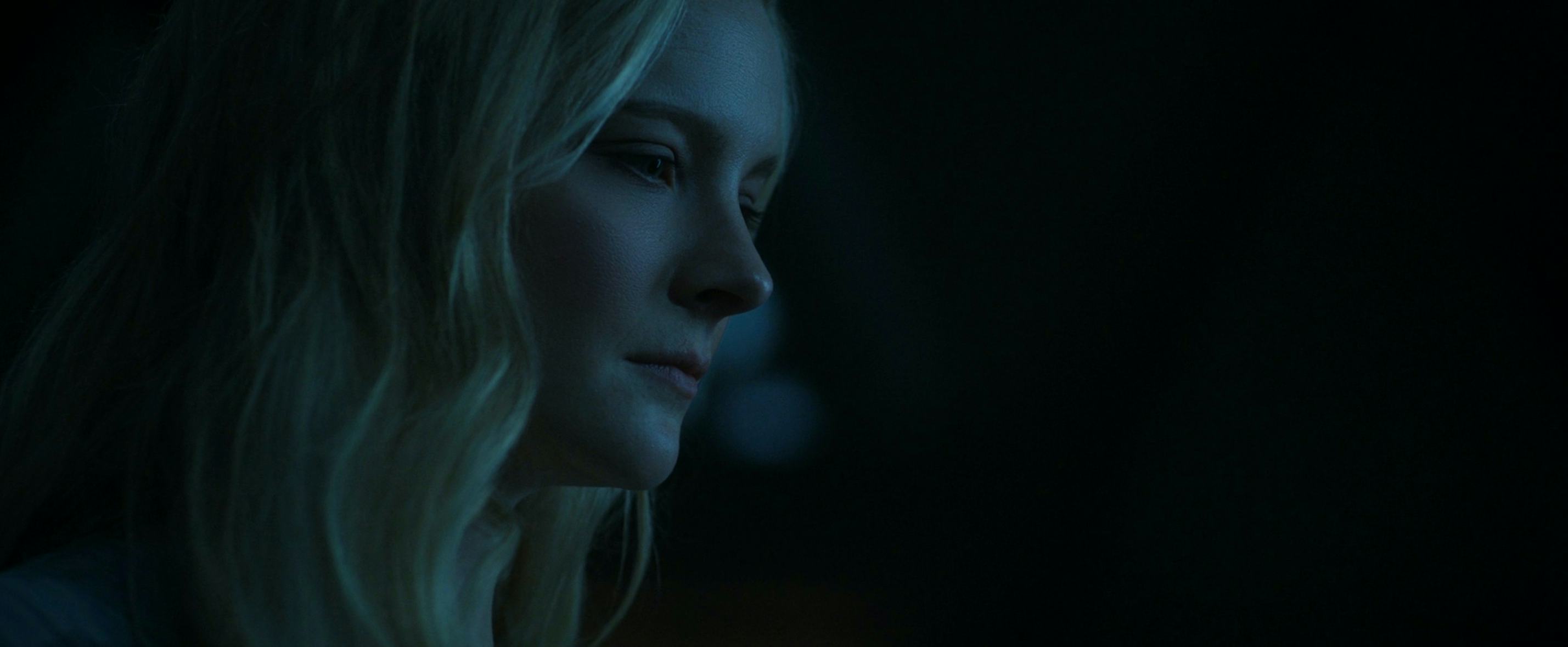
The Inverse Analysis — Númenor likely won’t be destroyed in The Rings of Power anytime soon, which means there’s still plenty of time for the series to justify its inclusion of Míriel’s visions. To the show’s credit, it’s also entirely possible that it’ll end up depicting the kingdom’s downfall so well that having just an idea of what lies in store for it will only make The Rings of Power’s future Númenor scenes feel that much more tragic.
However, it doesn’t seem unfair right now to call the show’s decision to so explicitly foreshadow Númenor’s destruction a major creative risk. Ultimately, only time will tell whether or not it was a wise choice.
Rings of Power airs Fridays on Amazon Prime.







